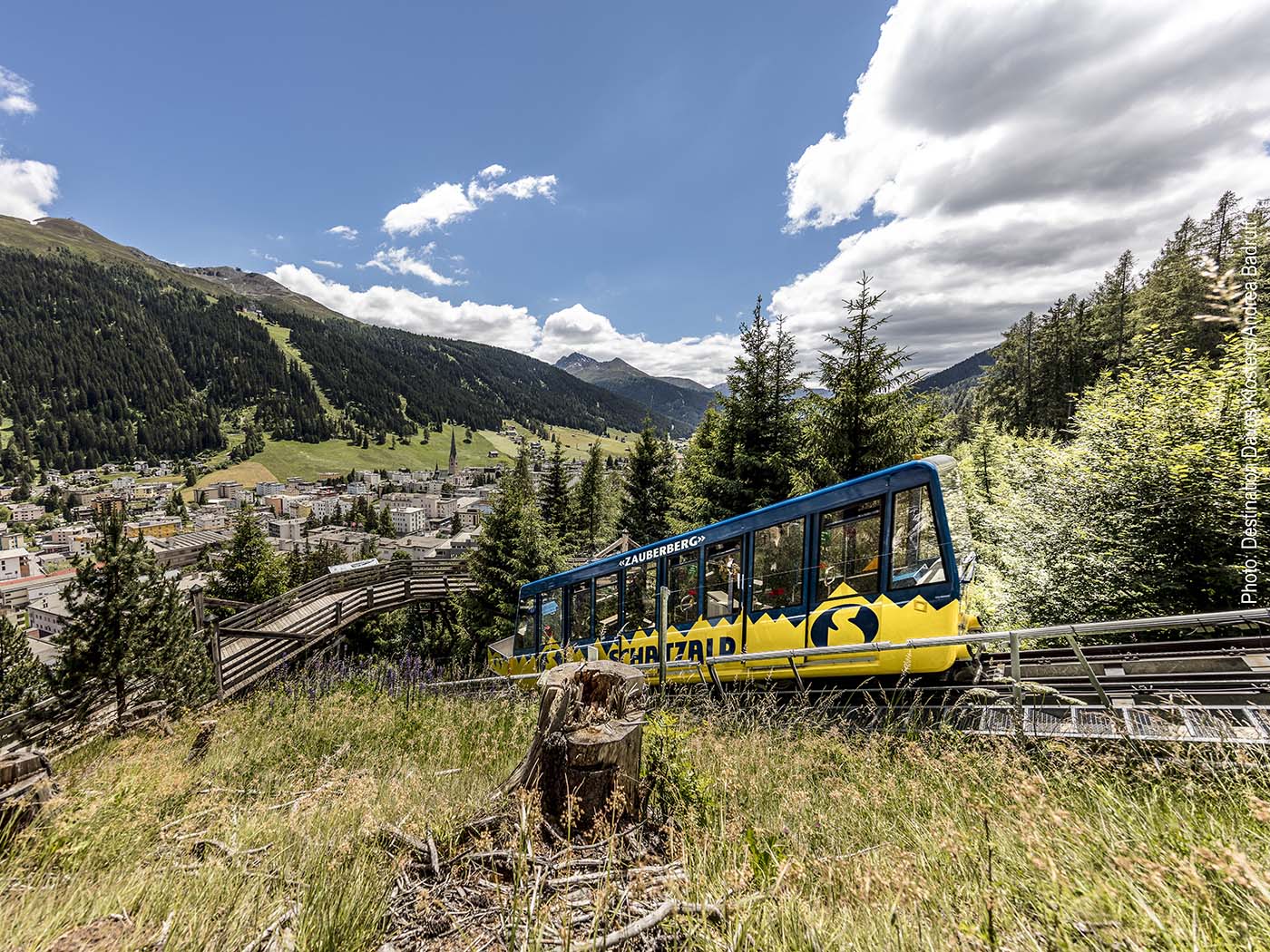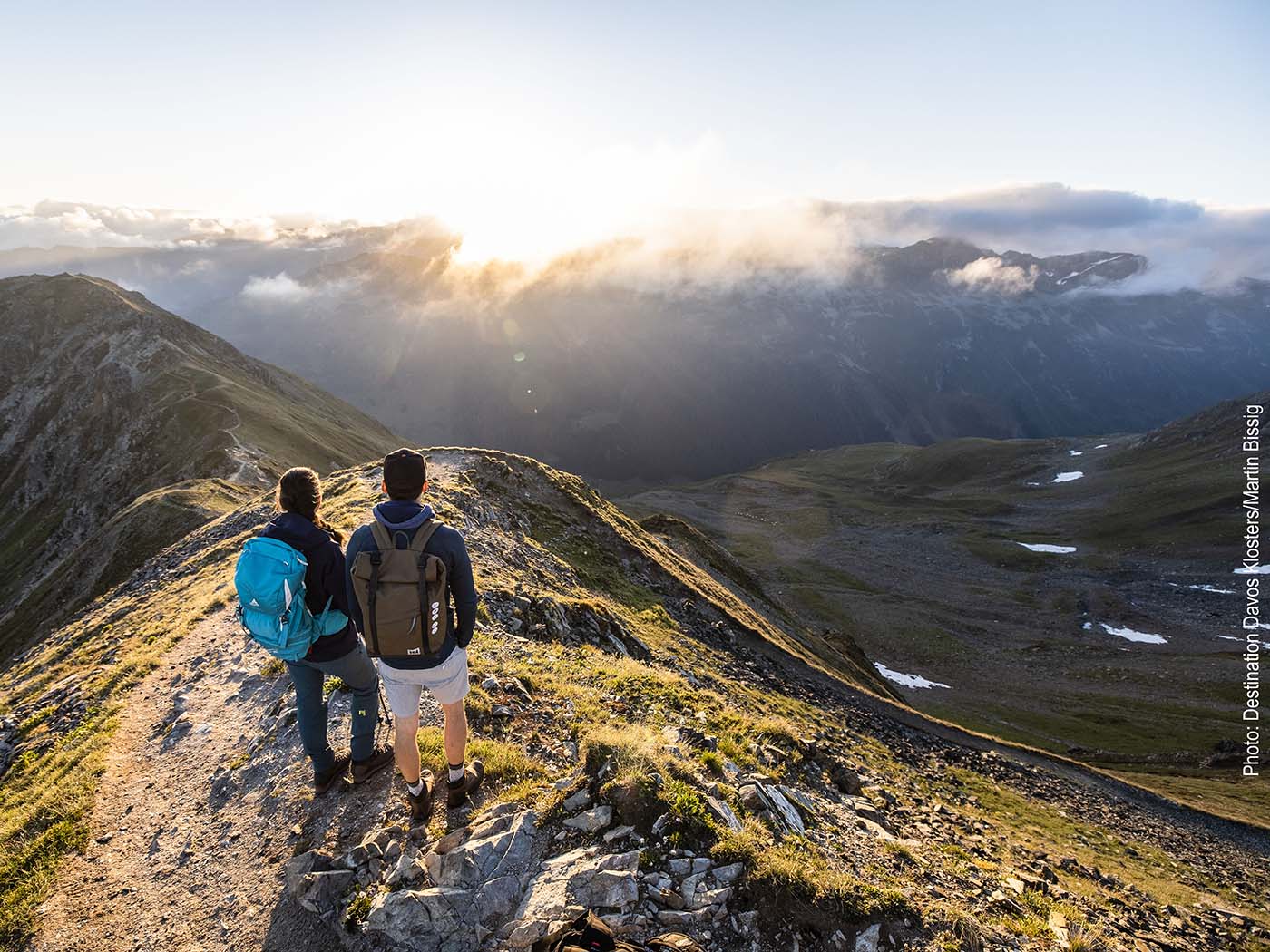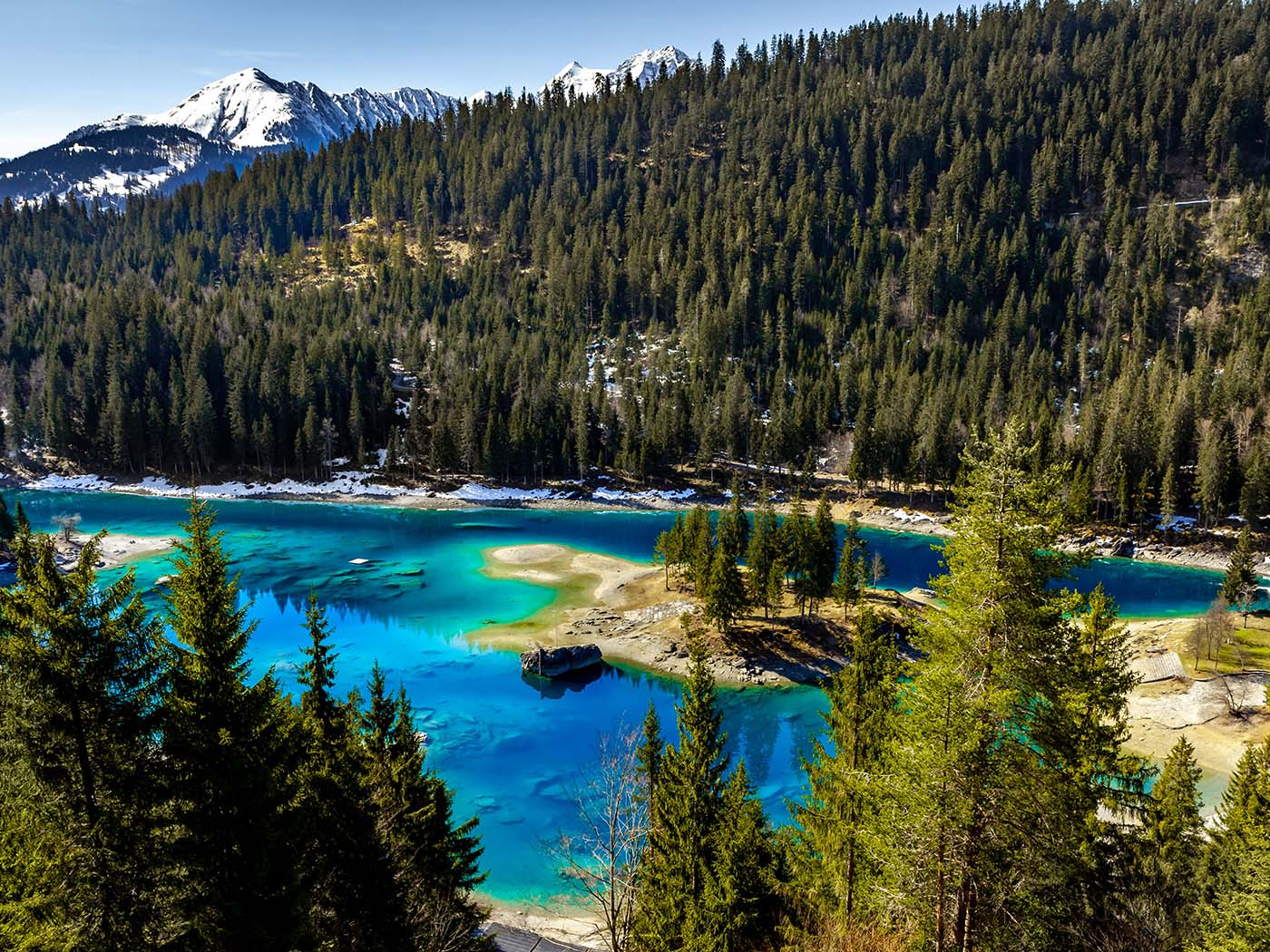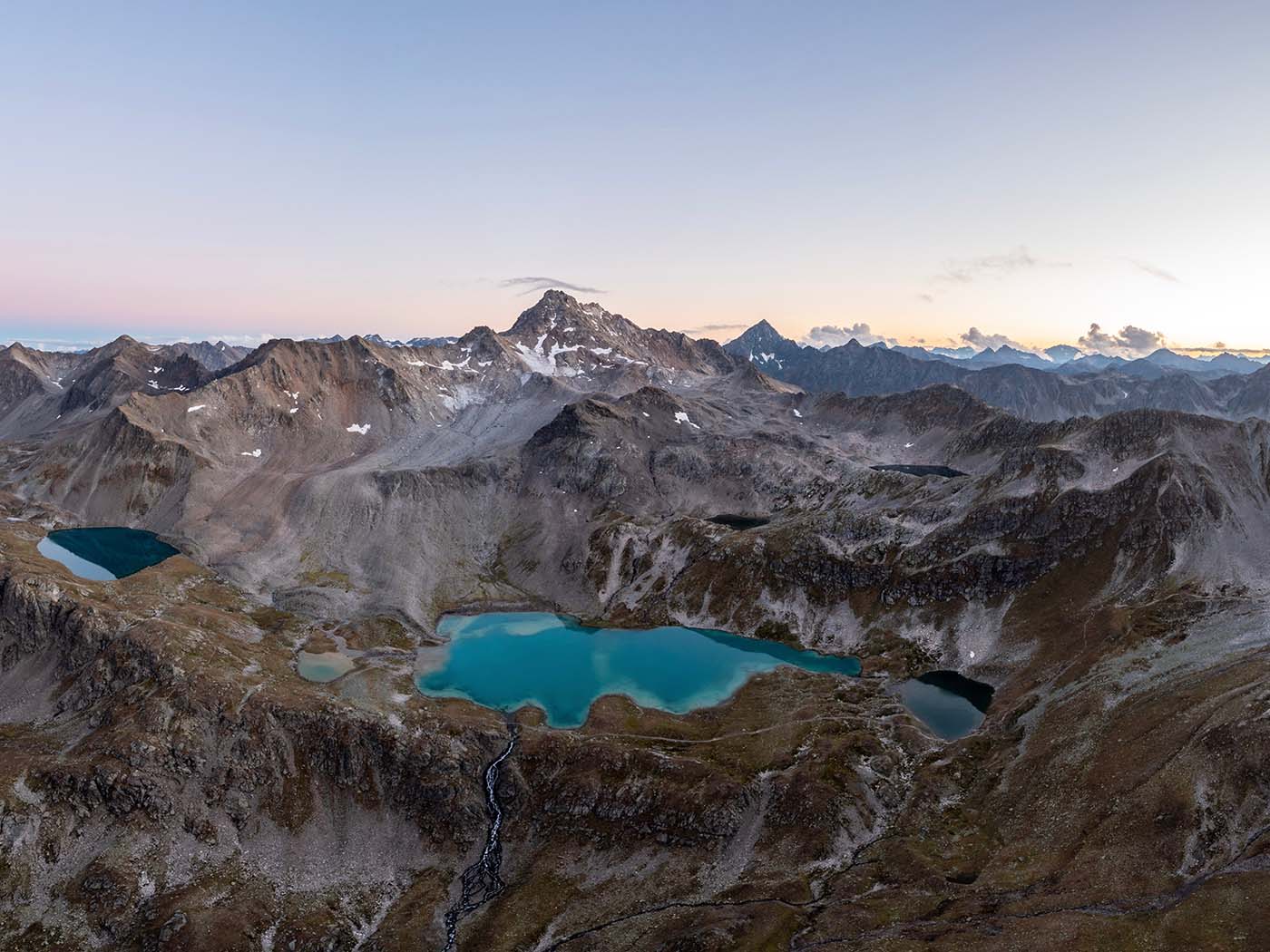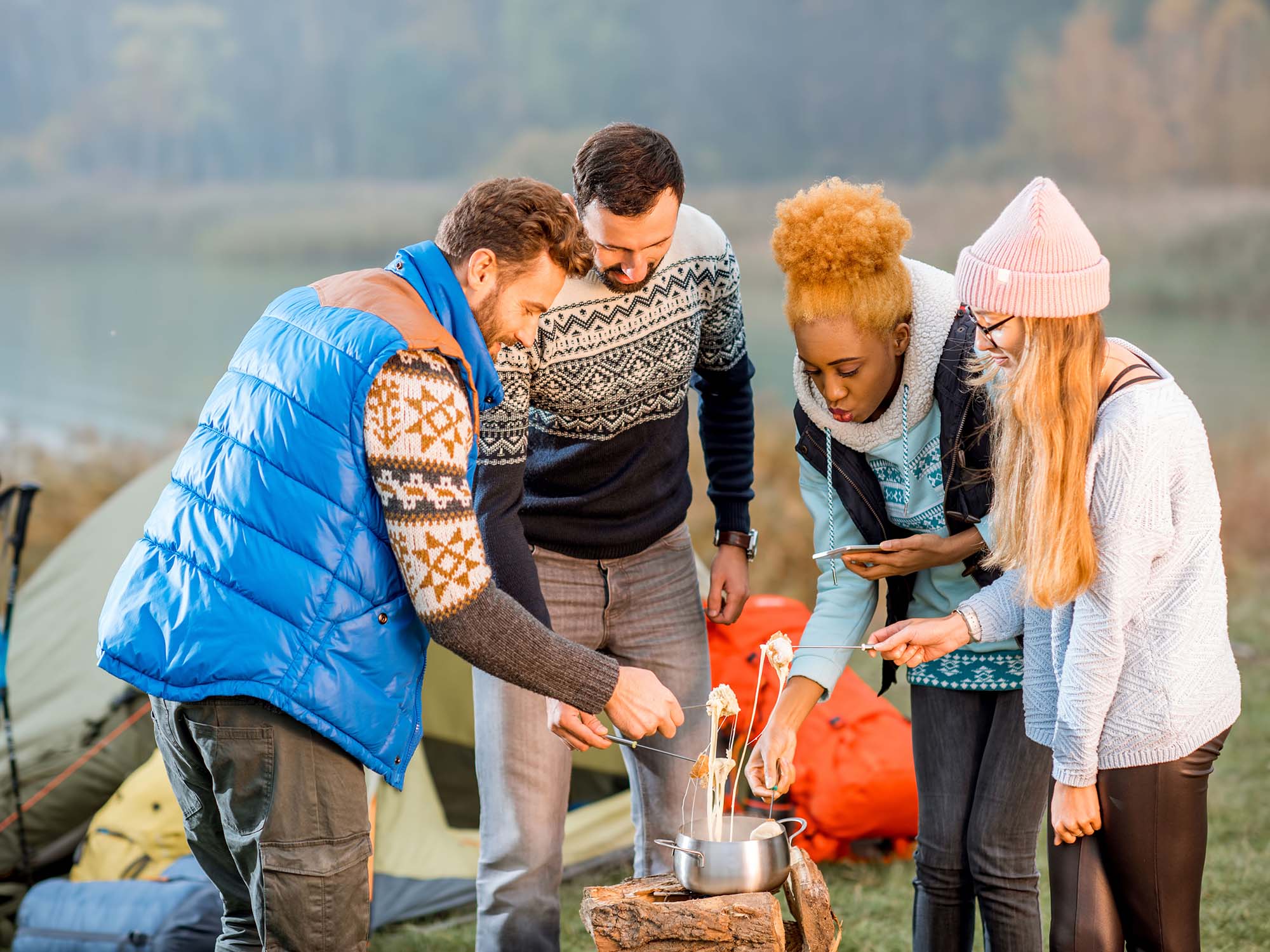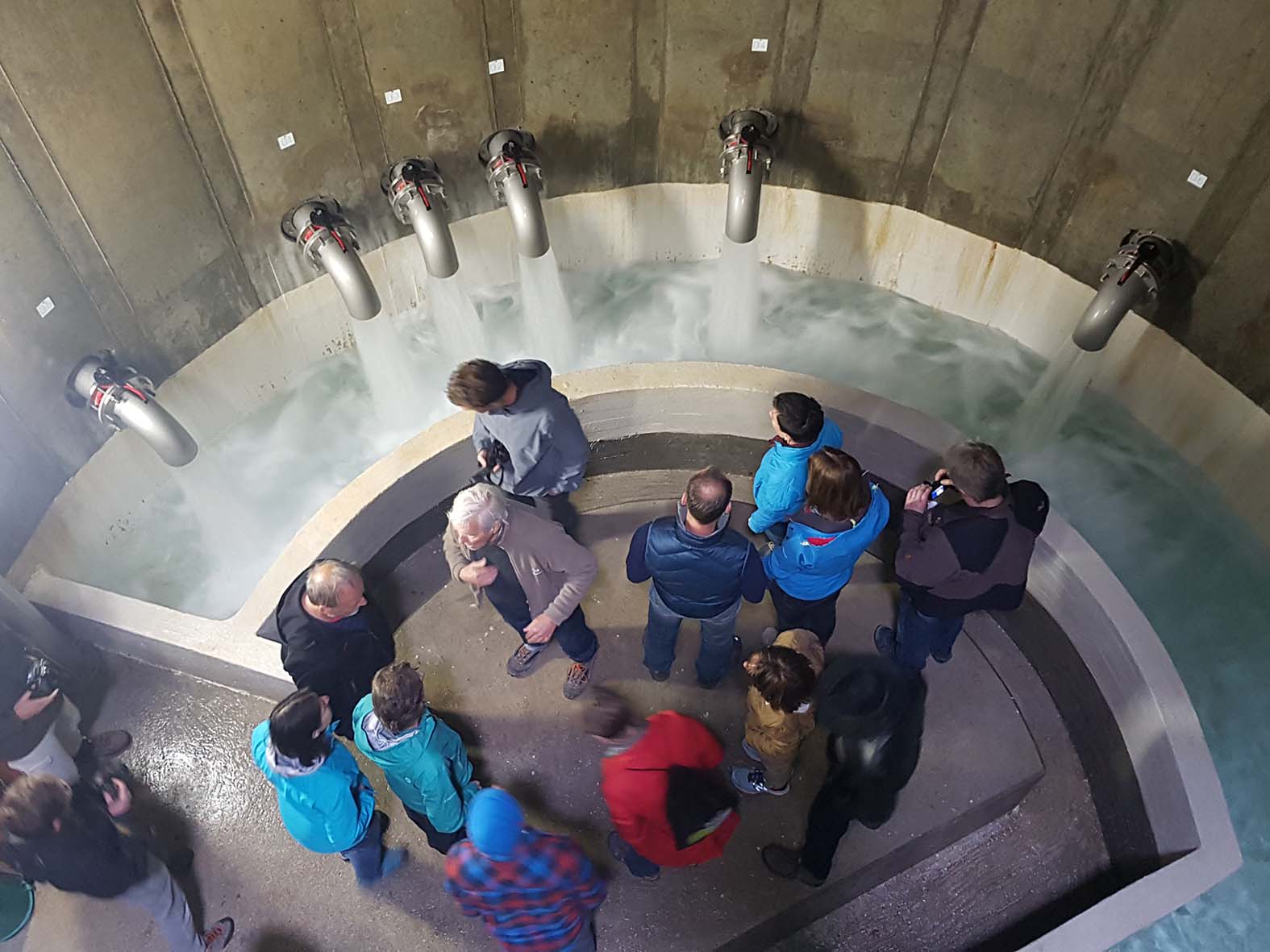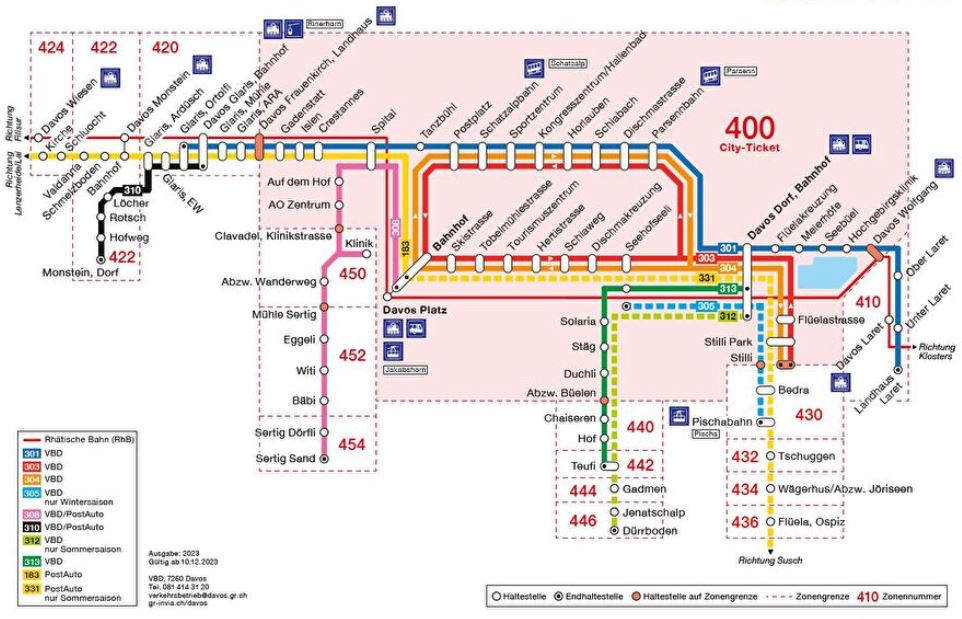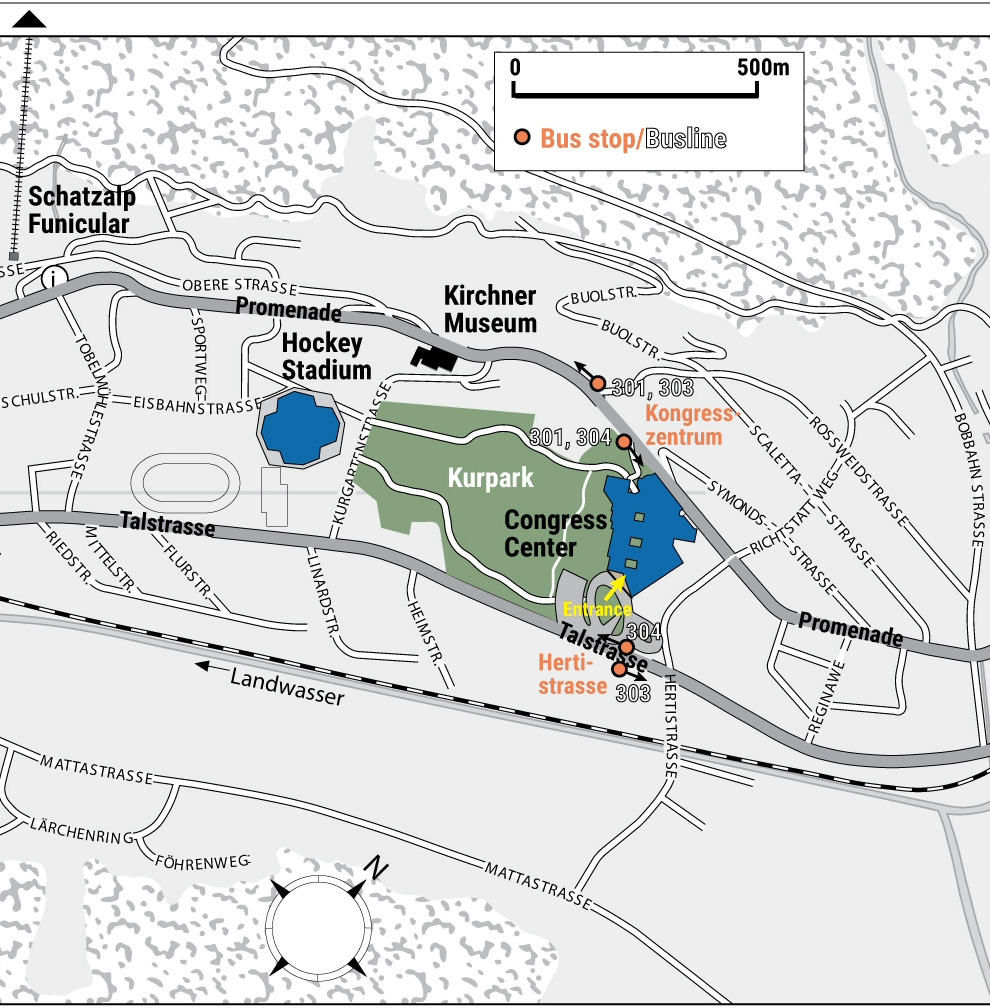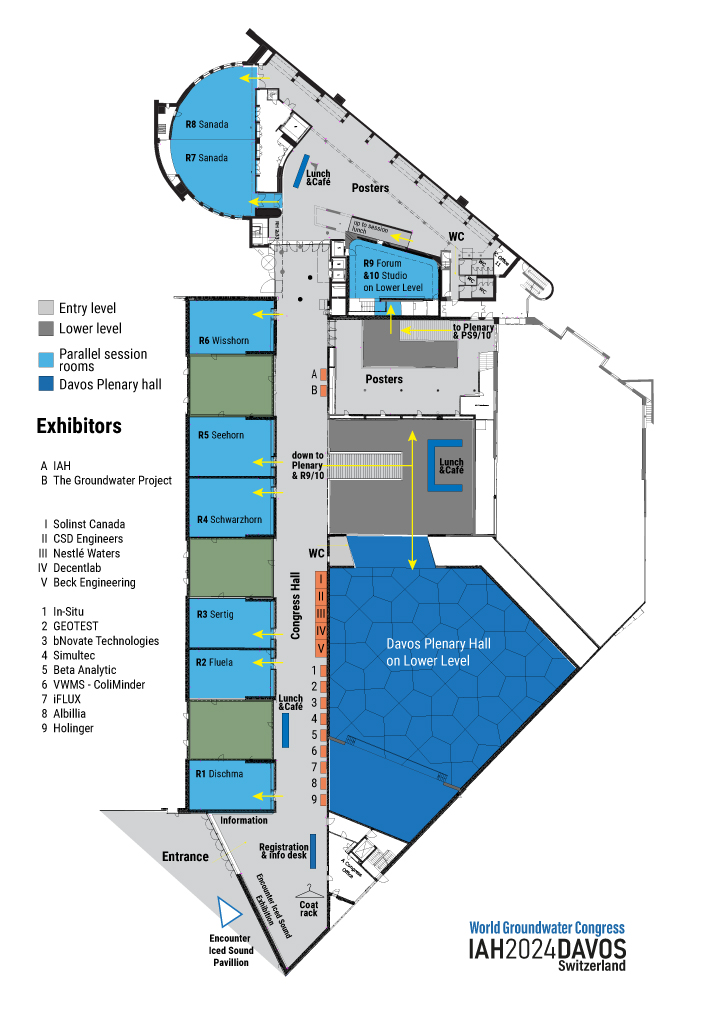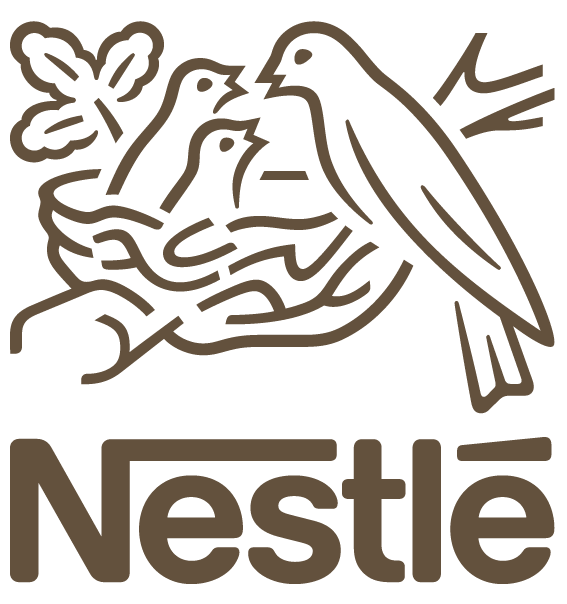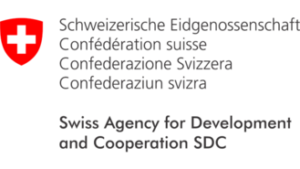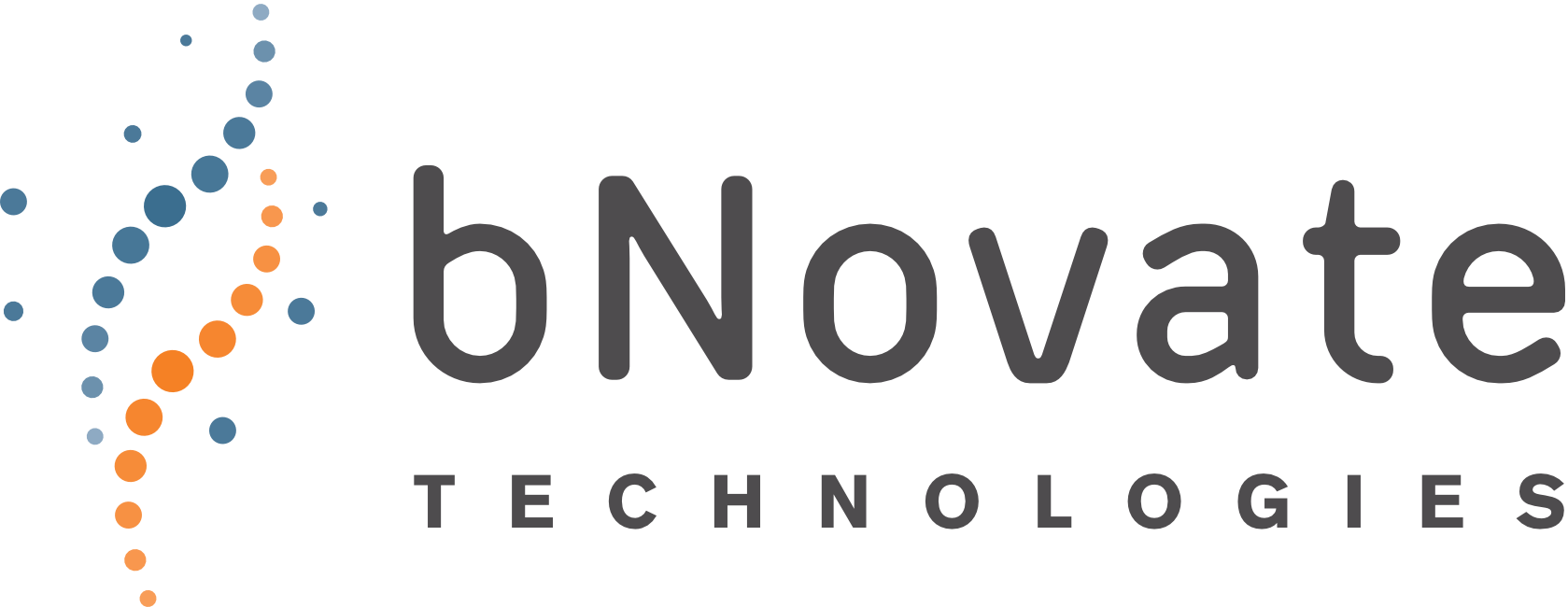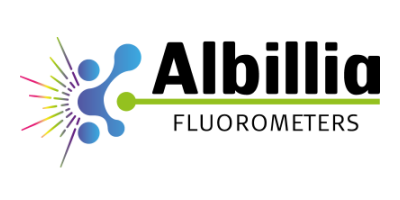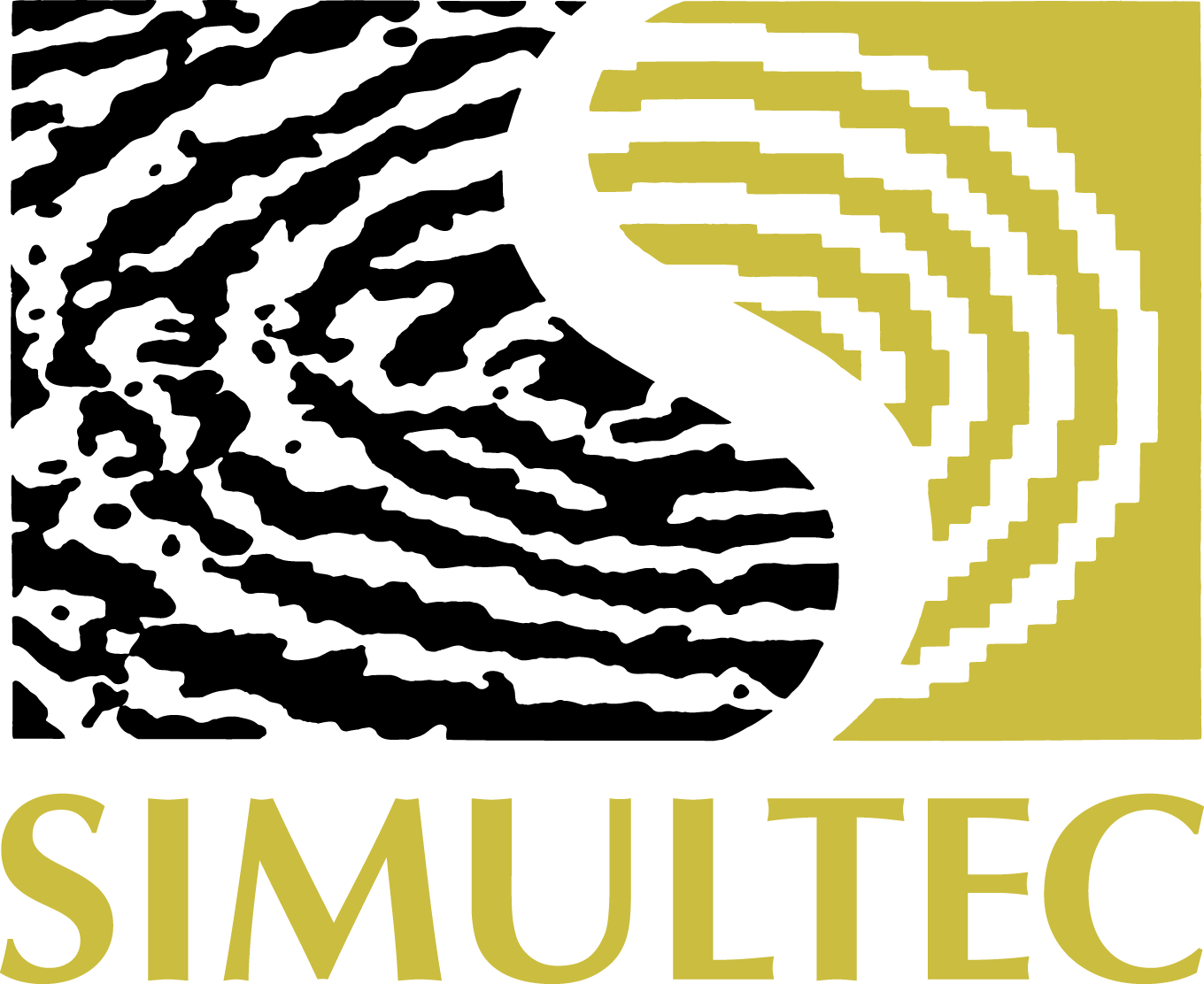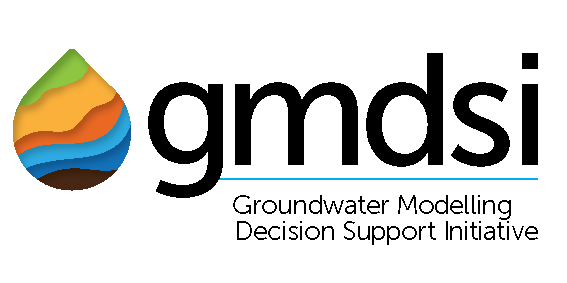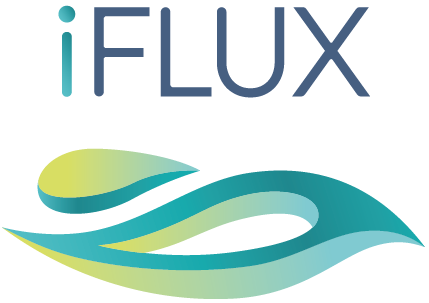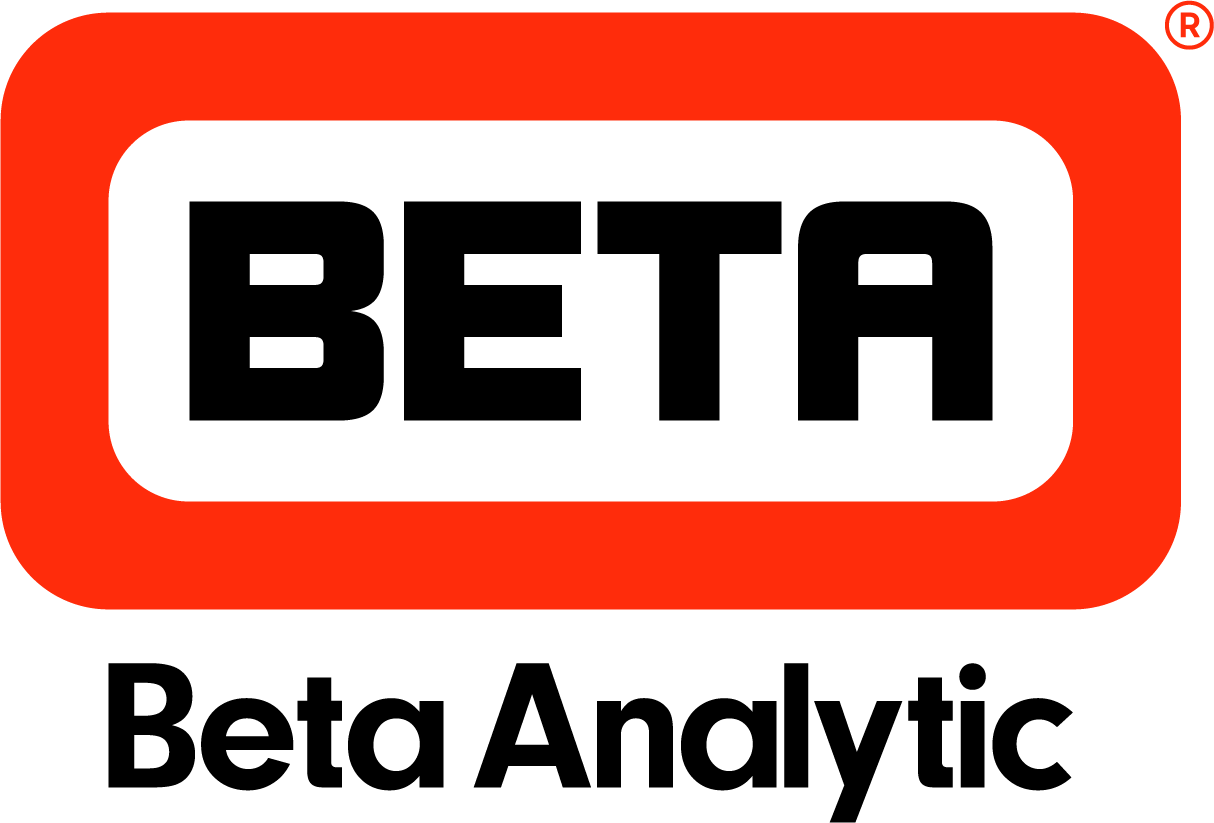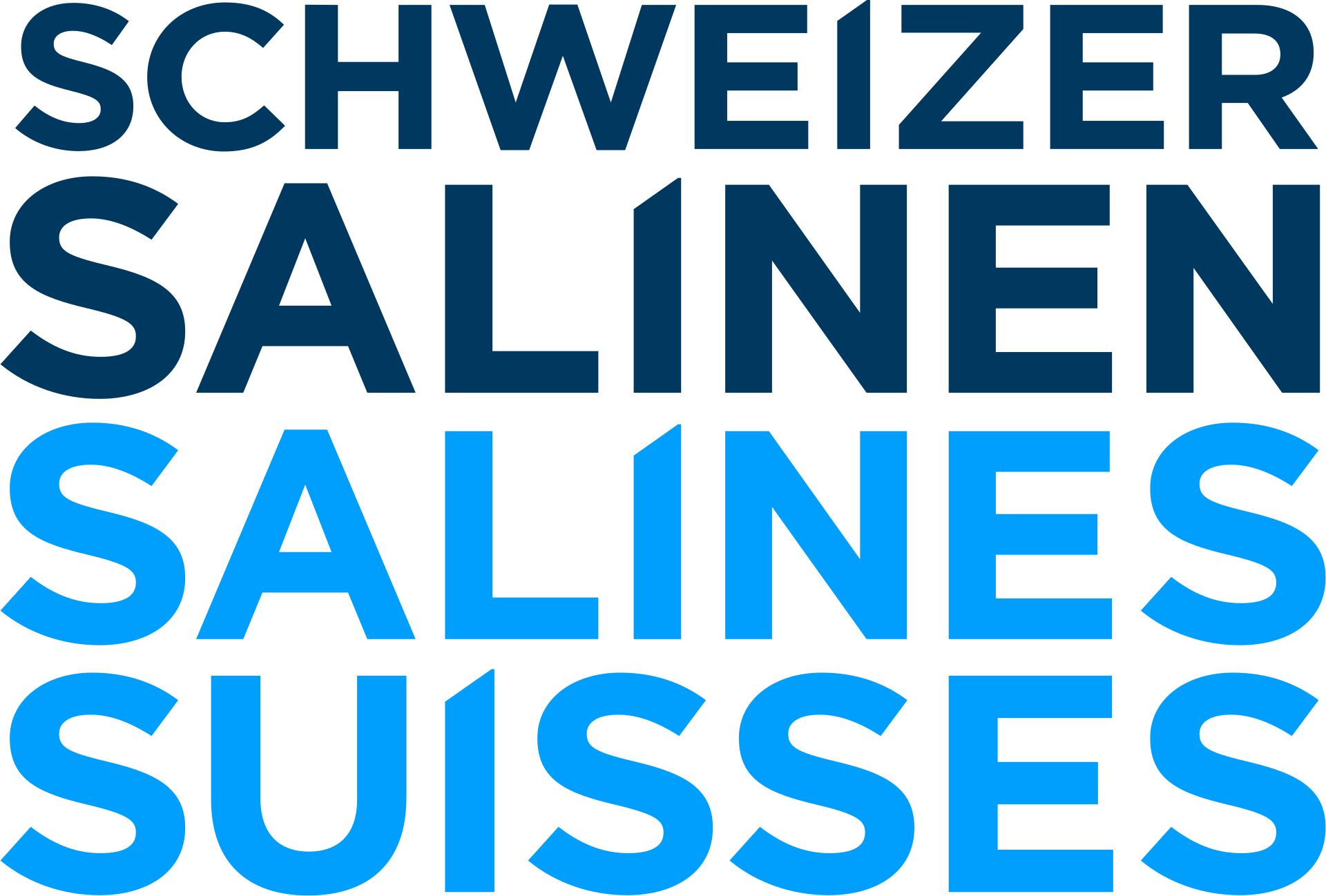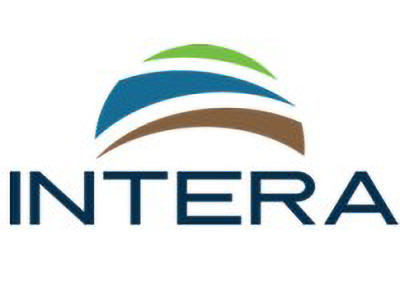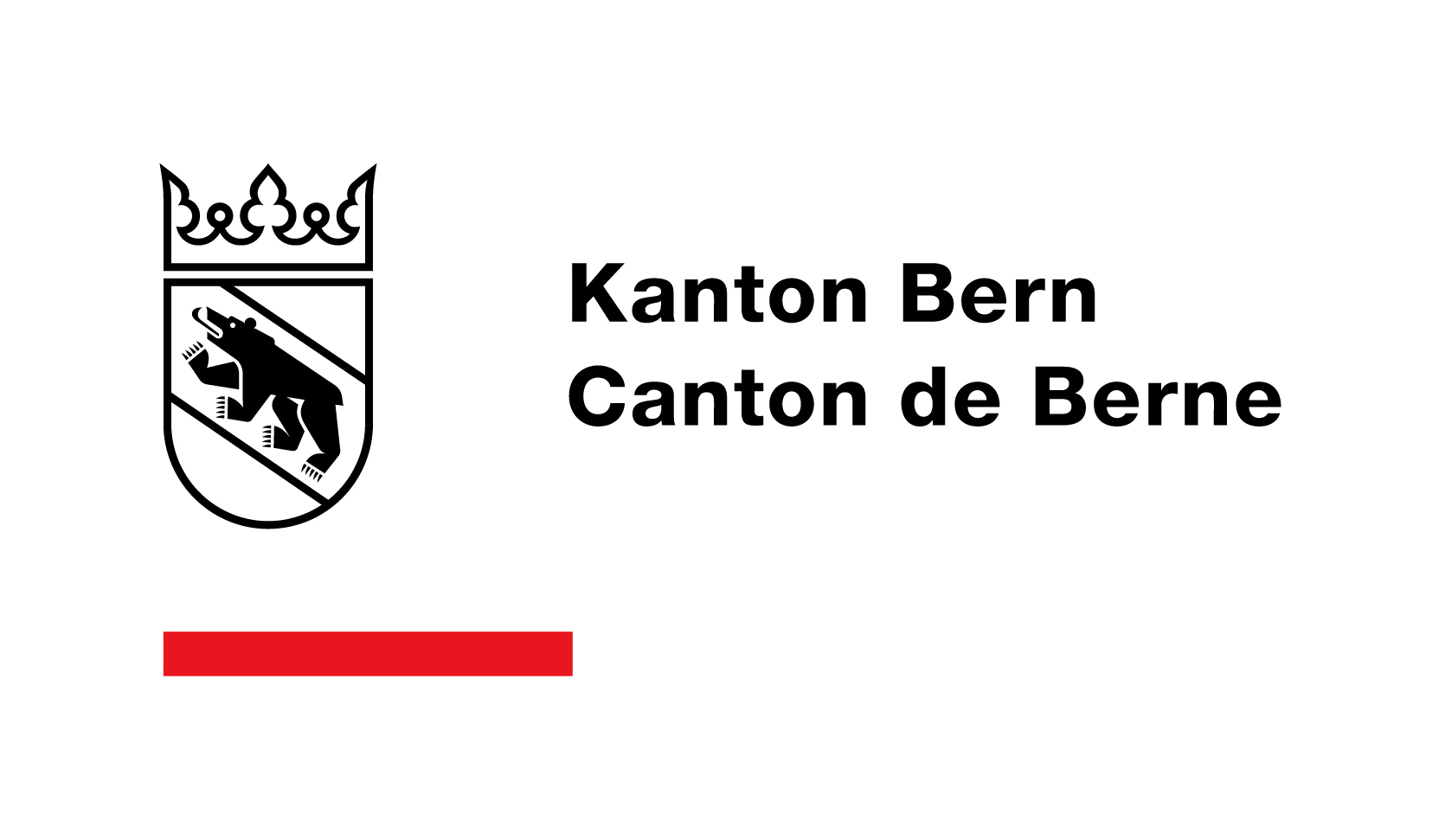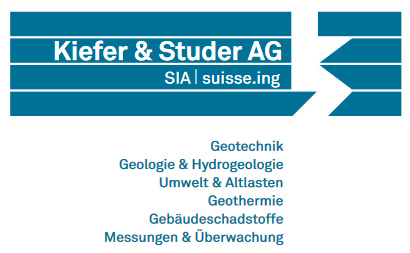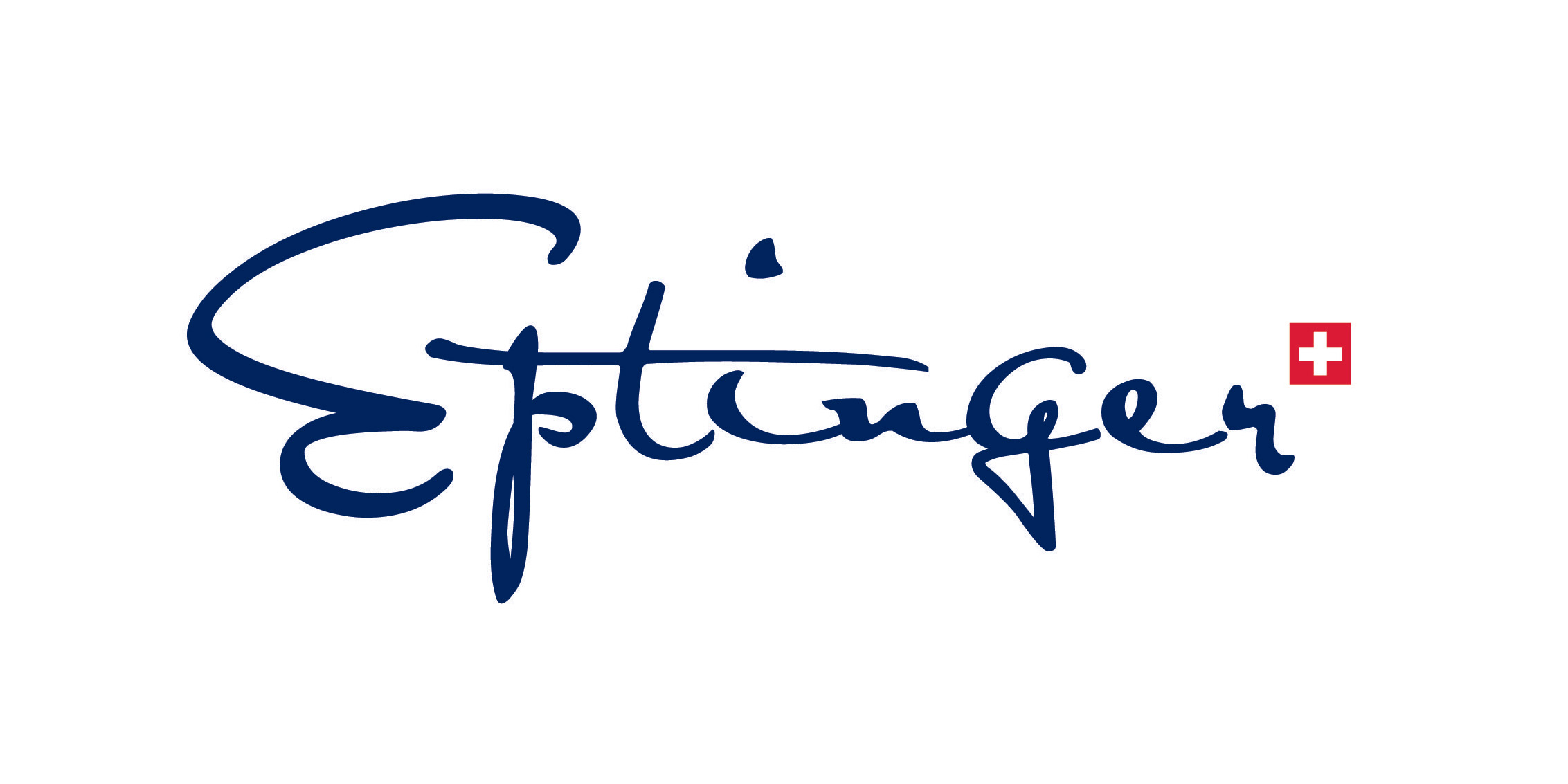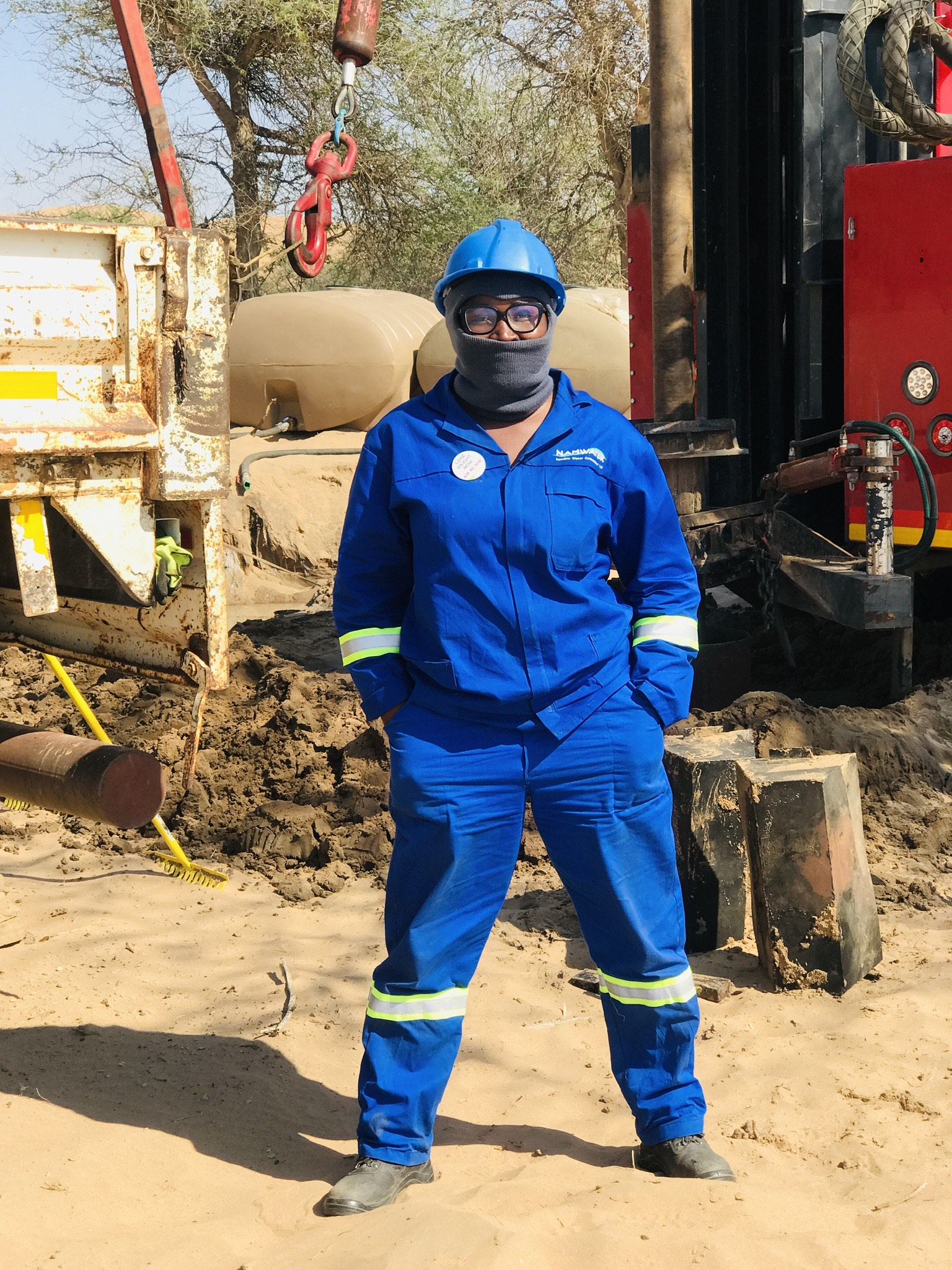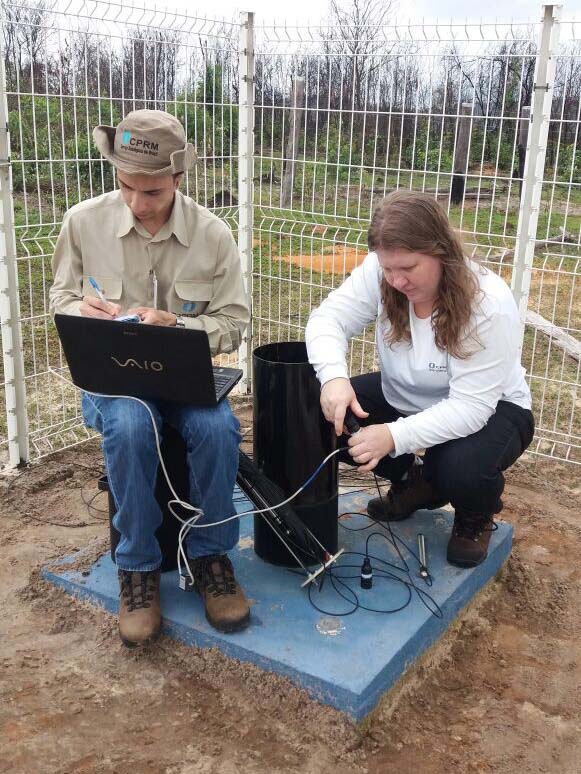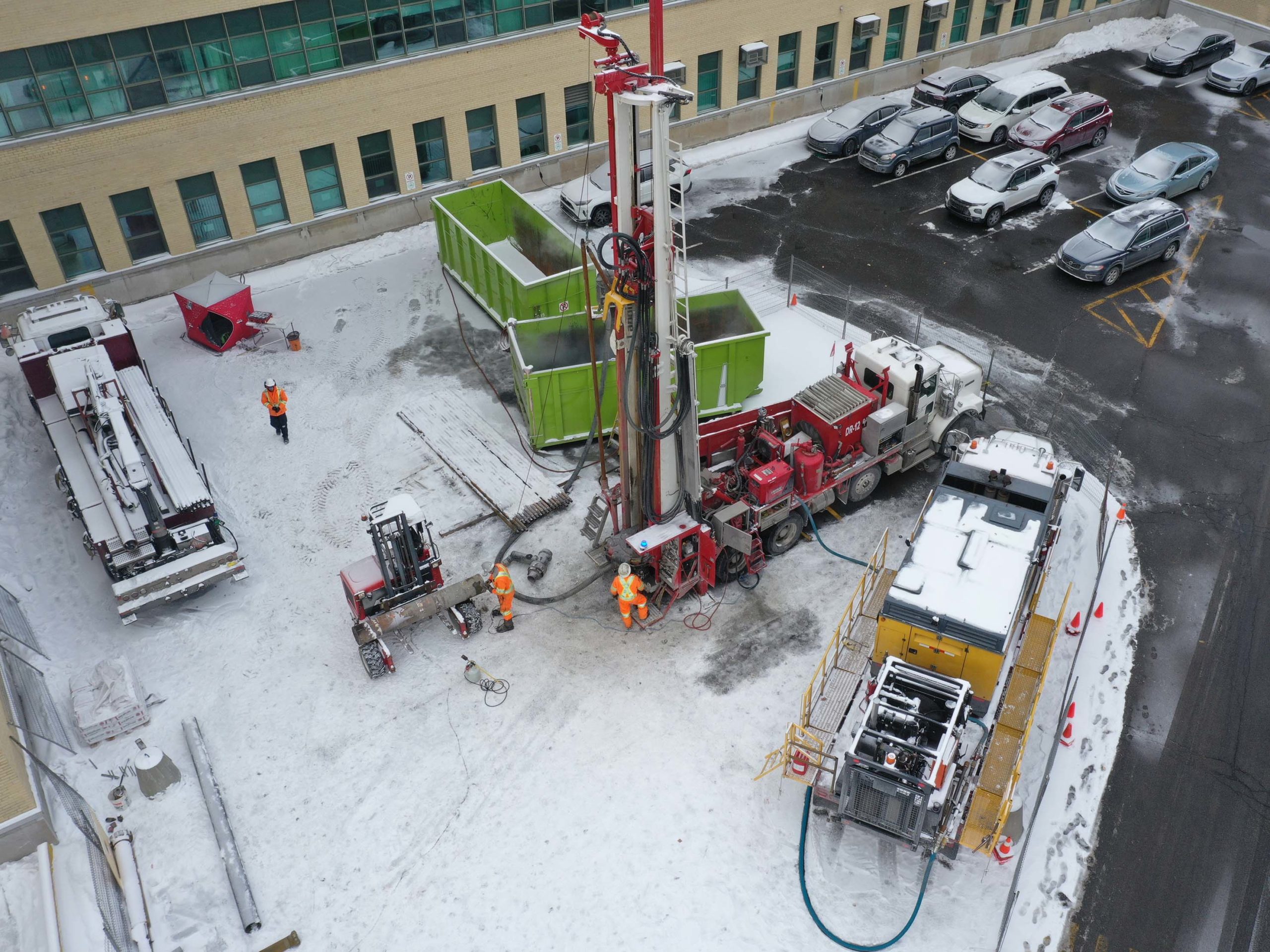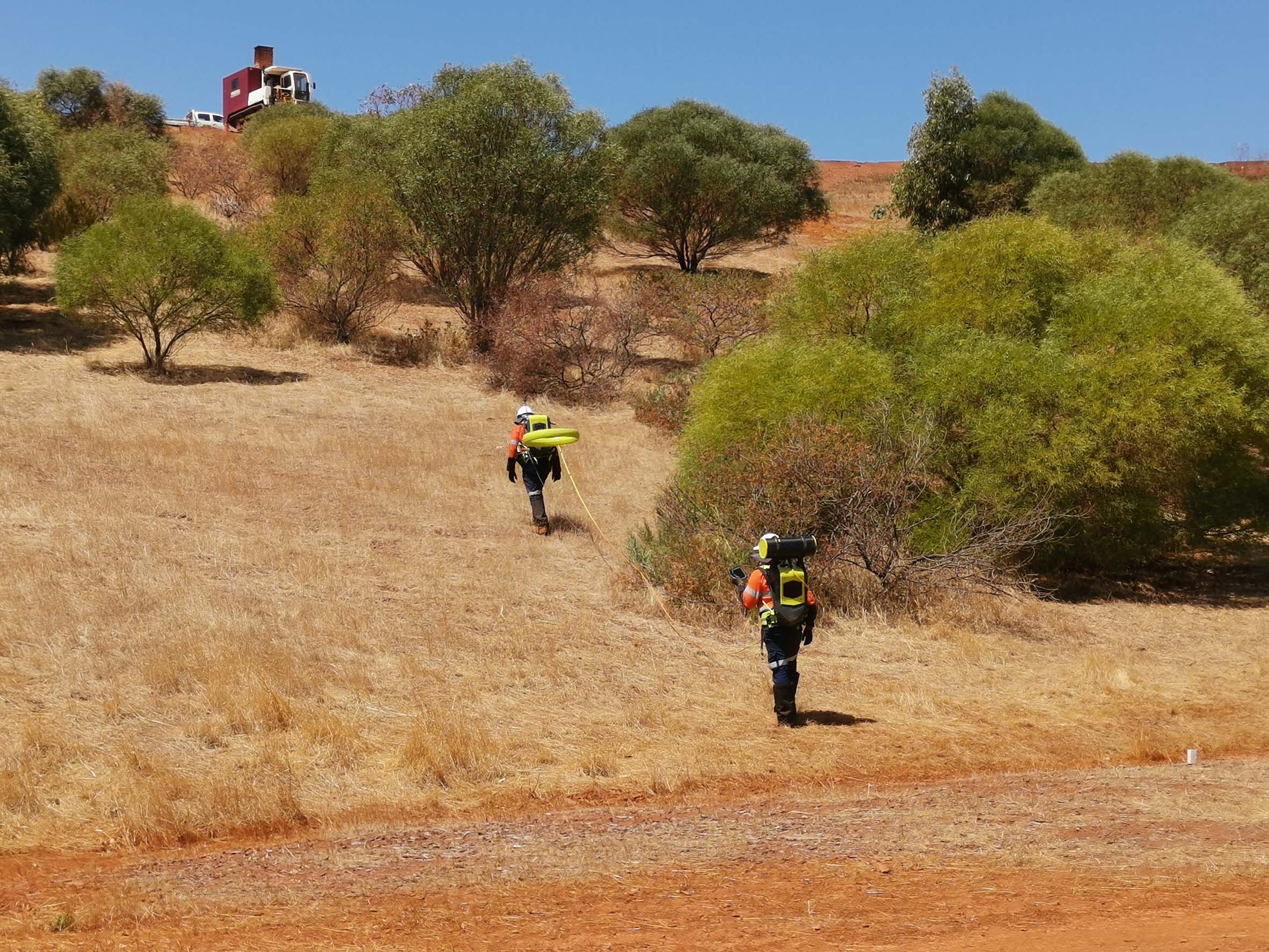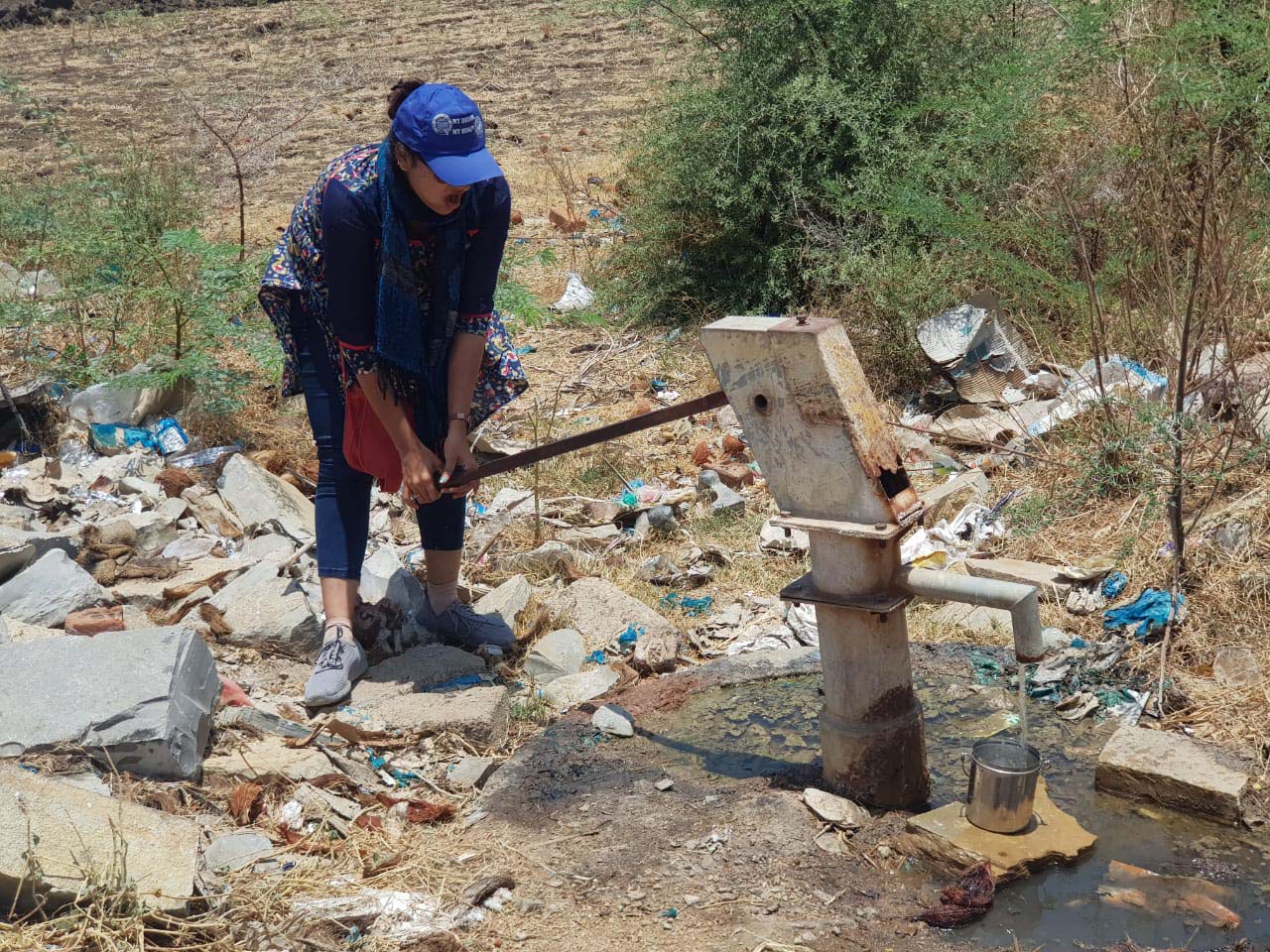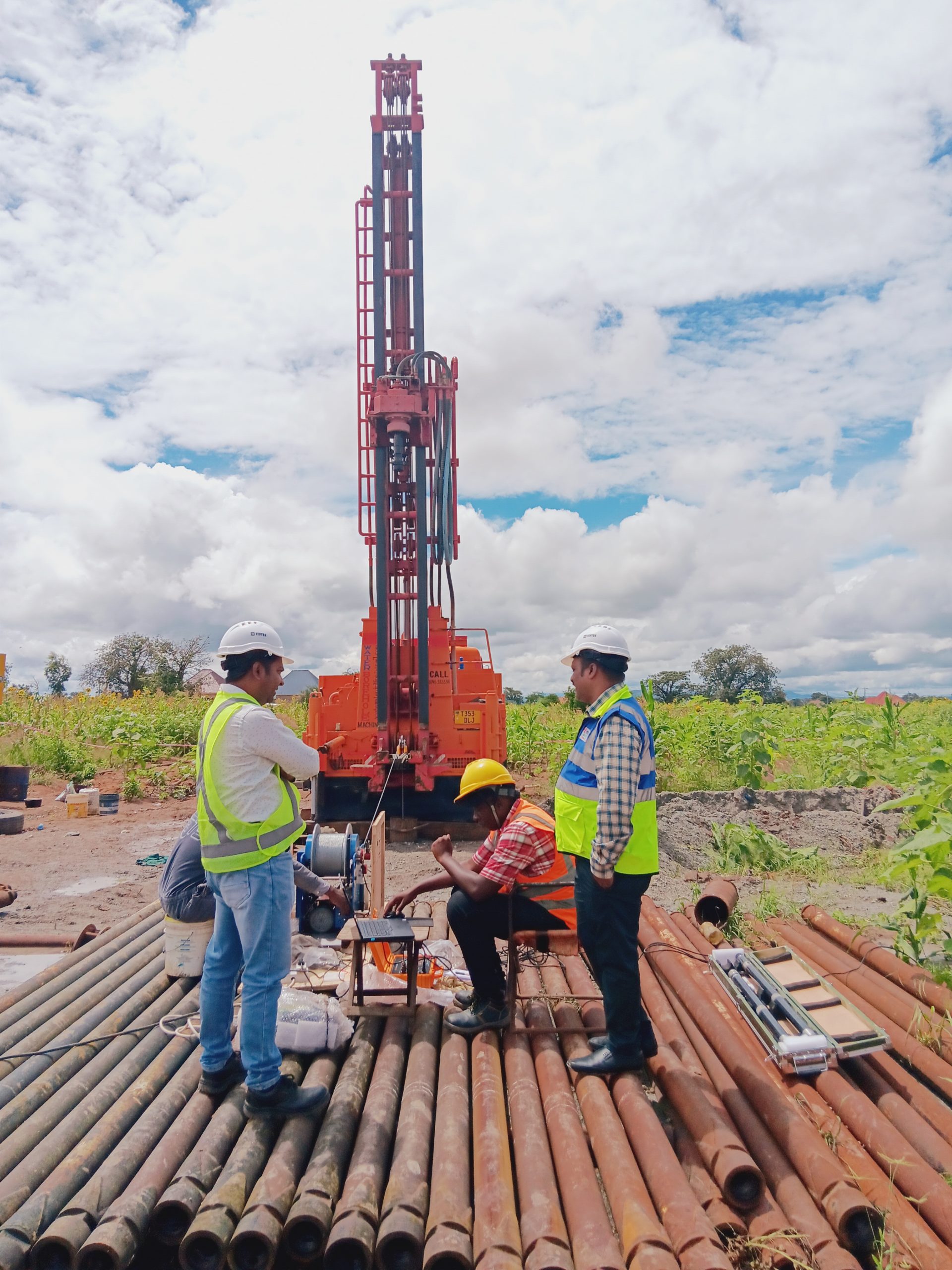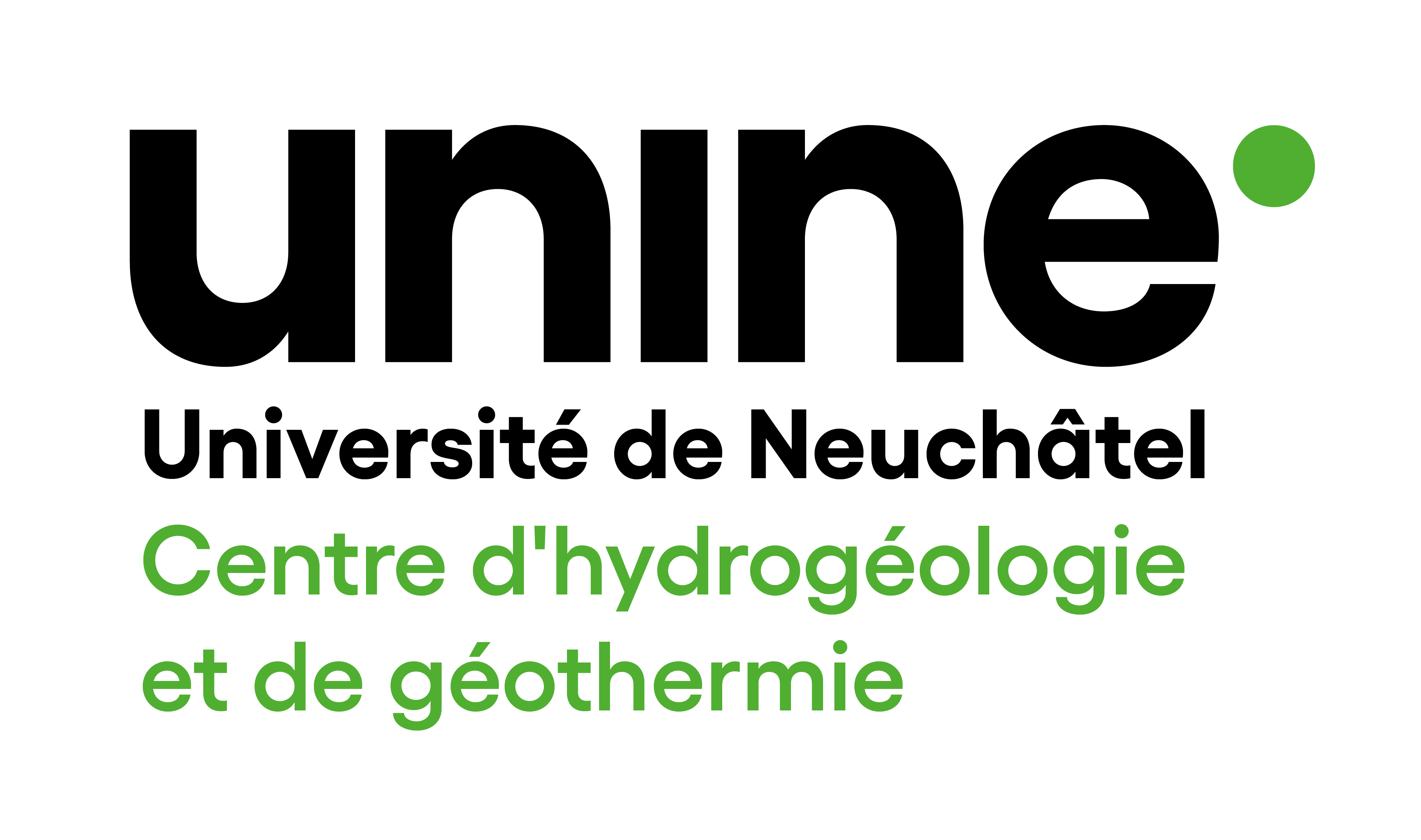

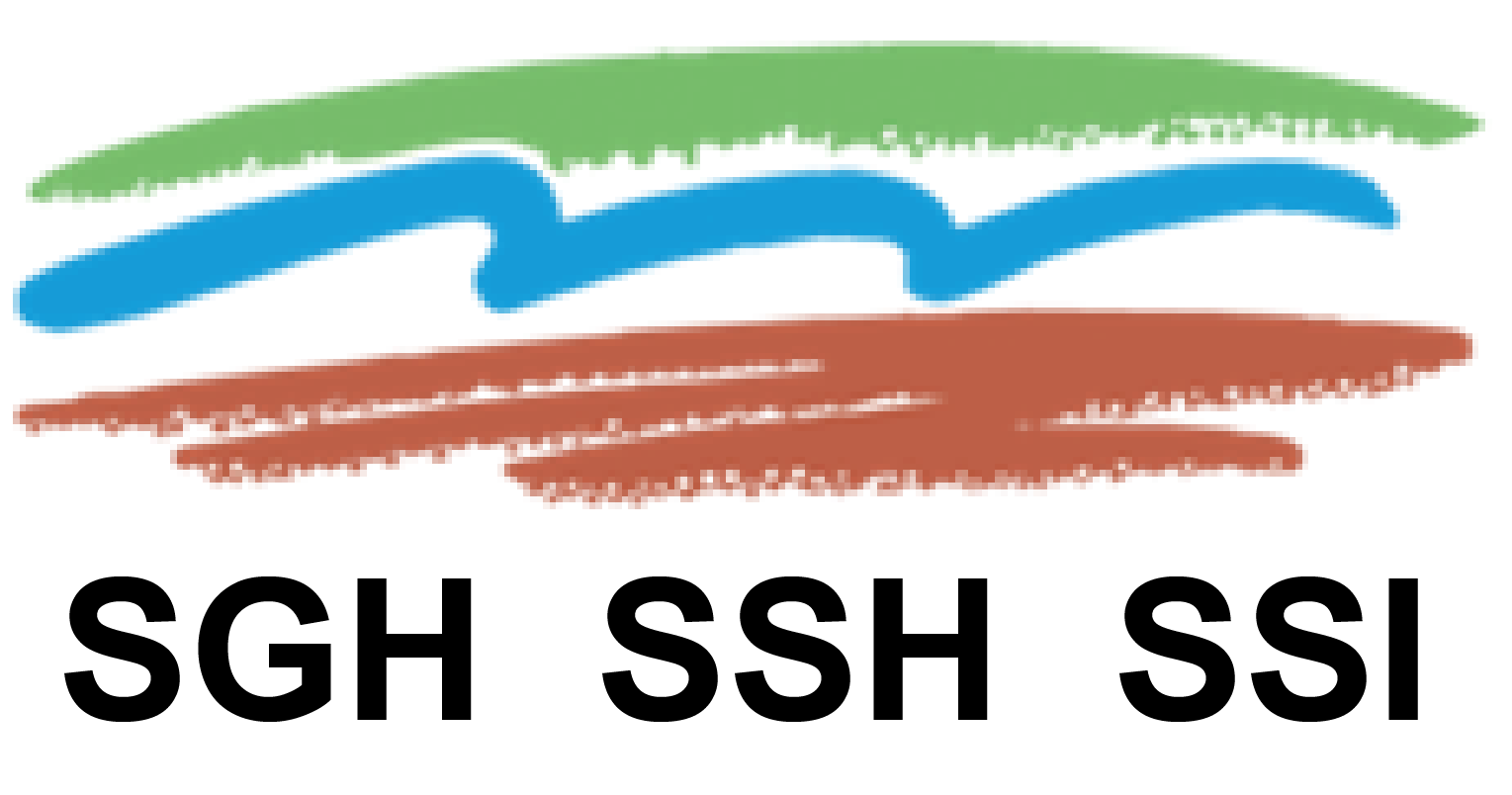
THANK YOU FOR ATTENDING IAH2024DAVOS
The Swiss Society of Hydrogeology (SSH), the Centre for Hydrogeology and Geothermics of the University of Neuchâtel (CHYN) and the International Association of Hydrogeologists (IAH) thank you for attending the World Groundwater Congress 2024 and making it an exceptional event. The dynamic and friendly atmosphere have highlighted the momentum of the global groundwater community. Participants were impressed by high quality of the presentations. Thank you for your contributions.
Organising Committee
Hunkeler, Daniel; Head of Organising Committee; University of Neuchâtel, Centre for Hydrogeology and Geothermics (CHYN), Switzerland
Brunner, Philip; Head of Scientific Committee; University of Neuchâtel, Centre for Hydrogeology and Geothermics (CHYN), Switzerland
Darazs, Olga; Sponsoring; CSD Engineers; SSH; Switzerland
Kauer, Seraina; Excursions and Networking Events; SSH; Switzerland
Sinreich, Michael; SSH; Switzerland
Wirth, Stefanie; Social Events and Swiss Day; Federal Office for the Environment (FOEN); SSH; Switzerland
Supporting Team
Erb, Sabine; Congress Secretariat; University of Neuchâtel, CHYN, Switzerland
Schneiter, Arthur; Communication and Social Media; University of Neuchâtel, CHYN, Switzerland
Local Scientific Committee
Brunner, Philip; Head of Scientific Committee; University of Neuchâtel, CHYN, Switzerland
Arnoux, Marie; CREALP, Switzerland
Jeannin, Pierre-Yves; ISSKA, Switzerland
Jimenez-Martinez, Joaquin, EAWAG and ETH, Switzerland
Möck, Christian, EAWAG and CHGNet, Switzerland
Musy, Stephanie, University of Basel and University of Berne, Switzerland
Schilling, Oliver; University of Basel and EAWAG, Switzerland
Schirmer, Mario, EAWAG, Switzerland
Thornton, James; Mountain Research Initative, University of Berne, Switzerland
Extended Scientific Committee
Alberti, Luca; Politecnico di Milano, Italy
Amani, Abou; Director of the UNESCO Division of Water Sciences and Secretary of the Intergovernmental Hydrological Programme (IHP)
Bakker, Mark; Delft University of Technology, The Netherlands
Bartolome, Andreo; University of Malaga, Spain
Batelaan, Okke; Flinders University, Australia
Bayer, Peter; University of Halle, Germany
Bouhlila, Rachida; National Engineering School of Tunis, university Tunis el Manar, Tunis
Boumaiza, Lamine; University of Waterloo, Canada
Brouyere, Serge; Université de Liège, Belgium
Chihi, Hayet; Centre for Water Research and Technologies, Georesources Laboratory, Tunesia
Cook, Peter; Flinders University, Australia
Donado, Leonardo David; Universidad Nacional de Colombia, Columbia
Doummar, Joanna; American University of Beirut, Lebanon
Ekmekci, Mehmet; Hacettepe University, Turkey
Folch, Albert; Groundwater Hydrology Group – Universitat Politècnica de Catalunya, Spain
Gill, Laurence; Trinity College Dublin, Ireland
Goldscheider, Nico; Karlsruhe Institute of Technology (KIT), Germany
Gomez-Hernandez, Jaime; Universitat Politècnica de València, Spain
Halloran, Landon; University of Neuchatel, Switzerland
Hendricks-Franssen, Harrie-Jan; Forschungszentrum Julich GmbH, Germany
Hervé, Jourde; Université Montpellier, France
Hinsby, Klaus; Geological Survey of Denmark and Greenland, Denmark
Husymans, Marijke; Vrije Universiteit Brussel and KU Leuven, Belgium
Kinzelbach, Wolfgang ; ETH Zurich, Switzerland
Lachassagne, Patrick; HydroSciences Montpellier, France
Liu, Jiaqi; The University of Tokyo, Japan
Marechal, Jean Christophe; BRGM, France
Molson, John W.; Université Laval, Quebec, Canada
Parker, Beth; University of Guelph, G360, Canada
Perez, Inaki Vadillo; University of Málaga, Spain
Ravbar, Natasa; Karst Research Institute ZRC SAZU, Slovenia
Re, Viviana; University of Pisa, Italy
Roques, Clement; University of Neuchatel, Switzerland
Sakambari, Padhi; The University of Tokyo, Japan
Stevanovic, Zoran; University of Belgrade, Serbia
Stumpp, Christiane; University of Natural Resources and Life Sciences, Austria
Therrien, Rene; Laval University, Canada
Wanner, Christoph; University of Bern, Switzerland
Wanner, Philipp; Department of Earth Sciences, University of Gothenburg, Sweden
Xie, Yueqing; Nanjing University, China
Xu, Yongxn; University of the Western Cape, South Africa
Zheng, Chunmiao; Southern University of Science and Technology, Shenzhen, China
THE PROGRAMME AT A GLANCE
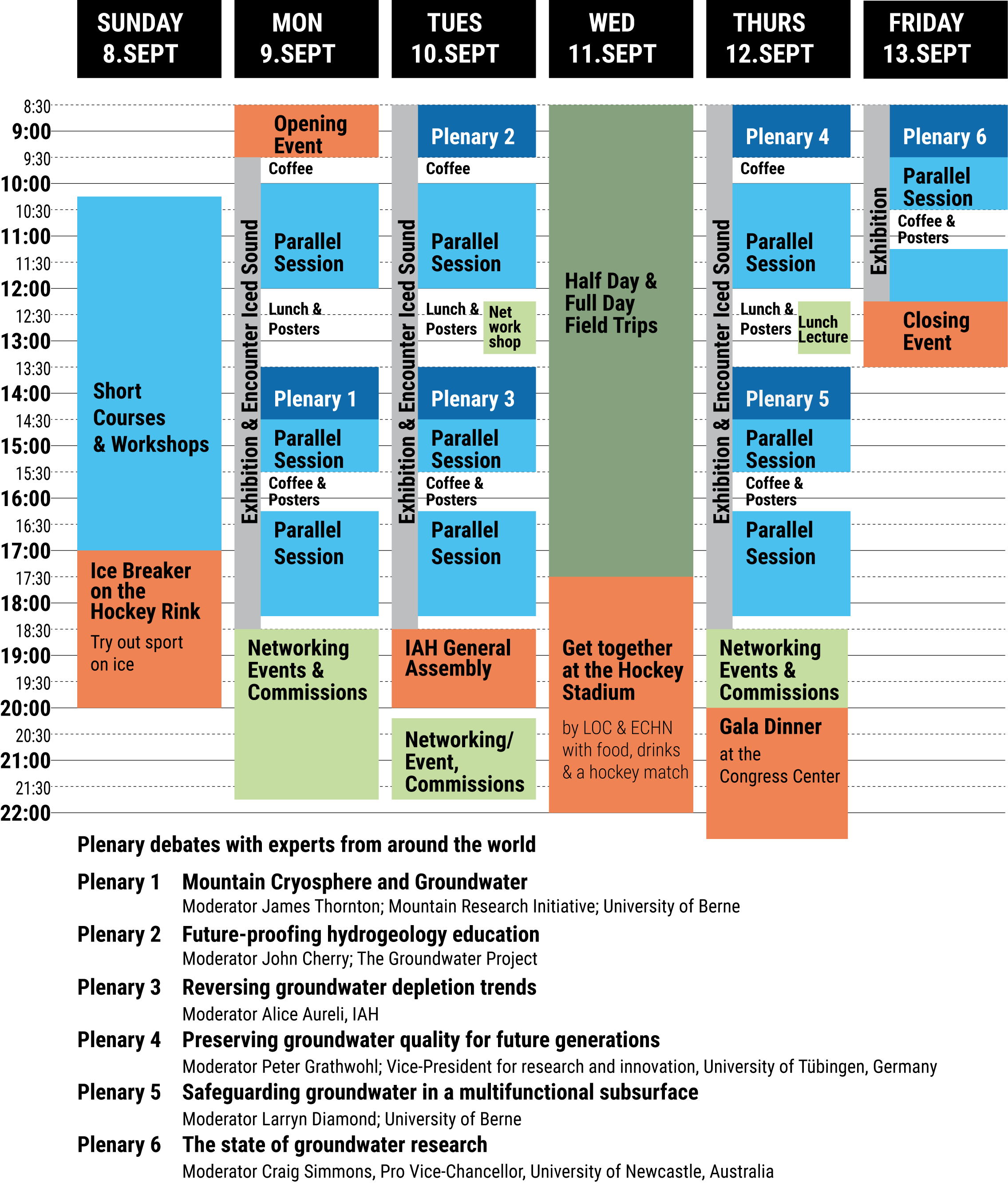
Build your personal programme on the desktop/tablet congress schedule or mobile app: Choose your favorites on any platform (congress account required) and they will be available on all platforms!nd they will be available on all platforms.
The Early Career Hydrogeologists’ network will honor the best oral and poster presentation at the 2024 World Groundwater Congress in Davos.
All scientists in the first 10 years of their career (after their last graduation, MSc or PhD) are welcome to participate in the award.
The IAH Congress is well known for its inclusive approach, welcoming participants with a broad background from all continents. We are building on this spirit and provide new opportunities for interaction and dialogue, with special opportunties for young hydrogeologists. In addition to parallel sessions covering all major groundwater topics, we will hold plenary debates centered around major groundwater challenges, side-events and short courses. Representatives from industry, academia and public administrations have the possibility to show-case innovative products and solutions during an exhibition. On Thursday some sessions will be dedicated to topics particularly relevant for the local context (SwissDay). A welcome reception, opening and closing ceremonies, and gala dinner will give a festive frame to the congress.
Congress Fee
| Swiss Francs (CHF) |
Regular | Onsite |
| until Aug 18, 2024 | ||
| Full – Non-Member | 850 | 950 |
| Full – IAH Member | 750 | 850 |
| Low Income Country | 450 | 500 |
| Student | 450 | 500 |
| Includes access to all congress sessions, icebreaker, excursion, lunch, coffee breaks | ||
| Student rate applies to undergraduate and graduate students (MSc, PhD) |
||
BEYOND THE CONGRESS CENTER
EXCURSIONS
Thanks to the alpine location, many scenic and scientifically rewarding sites will be visited. The field trips highlight interactions of groundwater with mountain rivers, lakes and the cryosphere, including excursions to high alpine settings. The excursions will illustrate the role of groundwater in different domains, from water supply by mountain springs, to spas and tourism, energy production, ecological processes, interactions with infrastructure such as tunnels, to natural hazards. Along the way we also visit other attractions like wineries, breweries or take a cable car. And there are also attractive options for accompanying persons.
NETWORKING EVENING ACTIVITIES
We will continue the dialogue outside of the congress center during evening hikes, mountain top dinners, technical visits or cultural events throughout the week, taking advantage of the scenic environment right at the doorstep of the congress center.
CONGRESS VENUE
Getting around in Davos
The Congress Centre is centrally located in Davos, on the border between Davos Platz and Davos Dorf, both of which have a railway station. The Congress Centre is served by several bus lines via the stops Kongresszentrum and Hertistrasse. The buses generally run every 15 minutes in the town centre. They can be used free of charge in Zones 400 and 410 with the Premium Guest Card provided by your hotel or guesthouse. The timetable is available on Google Maps and on the Swiss Railways App www.sbb.ch. Simply enter Davos followed by the name of the station as your departure point and destination.
Congress Center Area
The entrance to the Congress Centre is located on the lower Talstrasse side (south). If you get off at the Kongresszentrum bus stop, walk through the Kurpark to entrance. The Hockey Stadium (Icebreaker, Wednesday evening social event) is located at the opposite side of Kurpark. Buses for excursions depart from the parking lot at the congress centre entrance. The Kirchner Museum is located on the northern edge of the park.
The Congress Centre
The entrance is located on the south side of the building (Talstrasse). The entrance leads to the Congress Hall with the exhibition, 8 of the 10 parallel session rooms (R1 to R8) and the poster area at the end of the hall. Two more parallel session rooms (R9 and R10) and the Davos plenary hall are located one floor below, accessible via a large staircase from the centre of the Congress Hall. Coffee and lunch will be served all along the 120m long Congress hall.
Smoking is prohibited in the building, but possible at the entrance and in the courtyard between R5 and R6. Disinfectant dispensers will be available at the main entrance and the entrance of each session room. Lockers and coat racks (not supervised) are available next to the information desk.
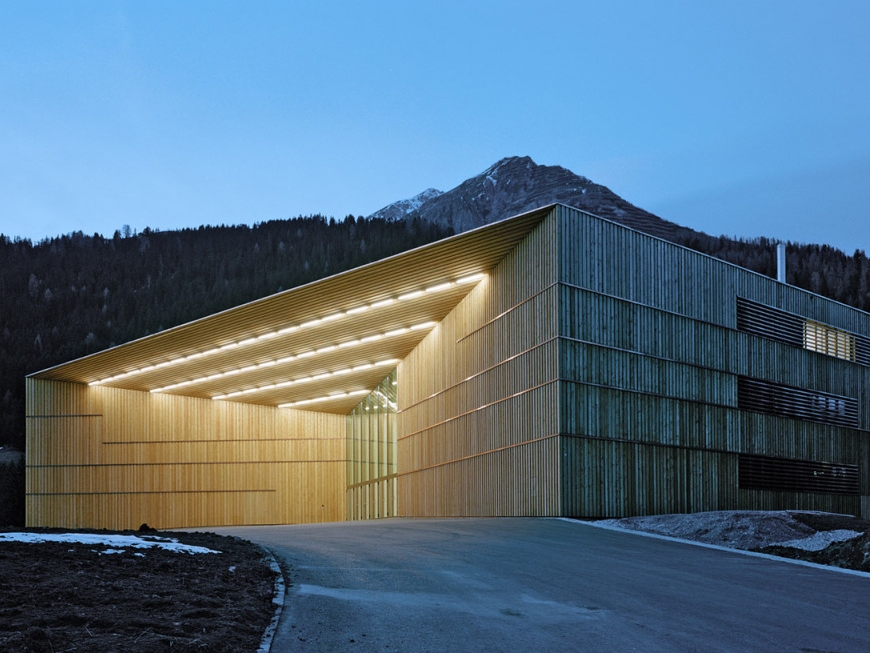
CONGRESS ORGANIZERS



Support the debate around a ressource that is vital to our society and show case your knowhow, products and services. For further information or to book a package contact: sponsors@IAH2024DAVOS.org
MY BEST HYDROGEOLOGY IMAGE
The image collection is growing with contributions from around the world. We are waiting for yours. Add a description where and in what context it was taken, what it represents and why it is your favorite hydrogeology image. Sent it to image@iah2024davos.org
All images will be displayed here. The best images will be printed in large format and shown in the parallel session rooms.

